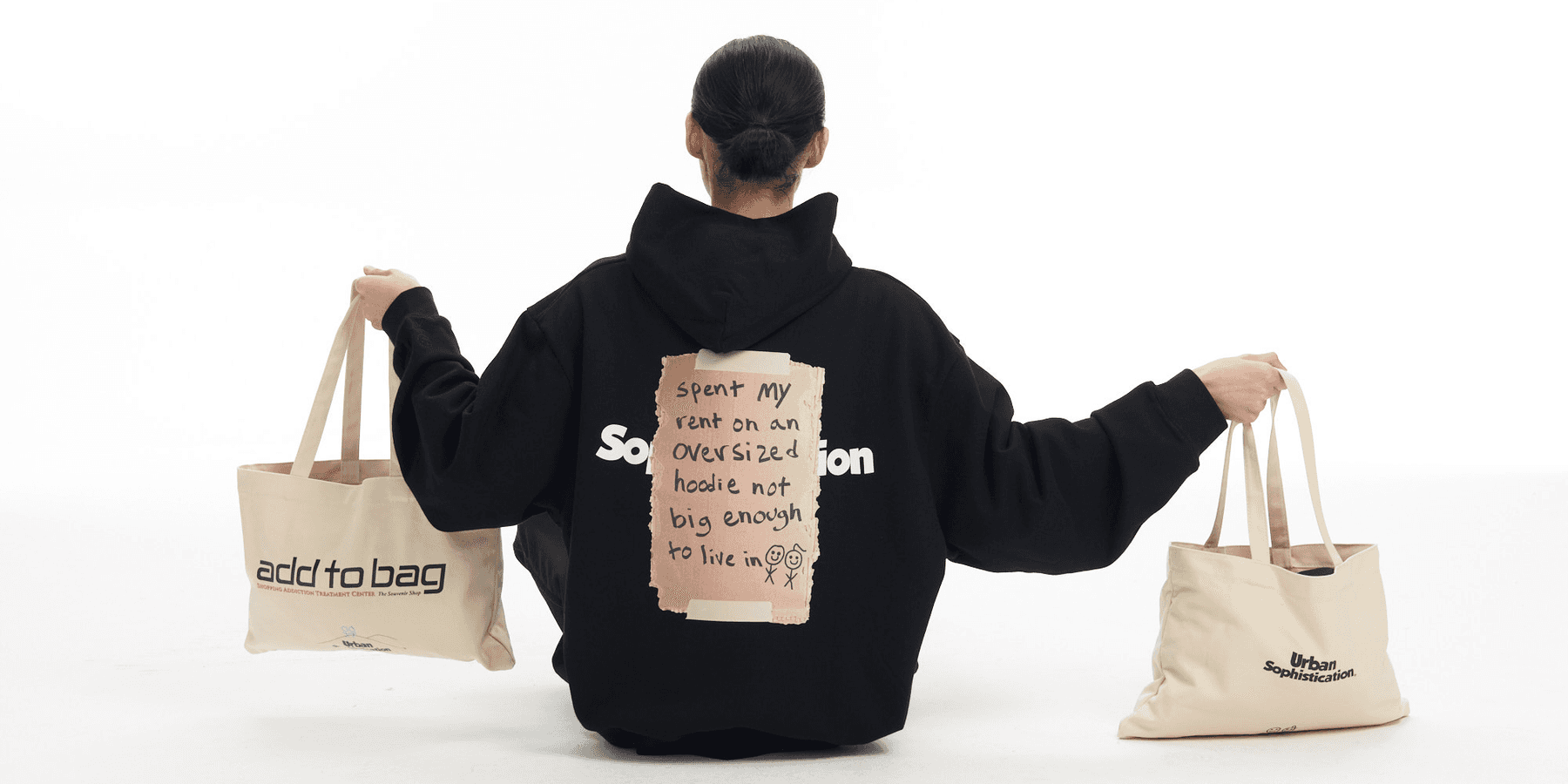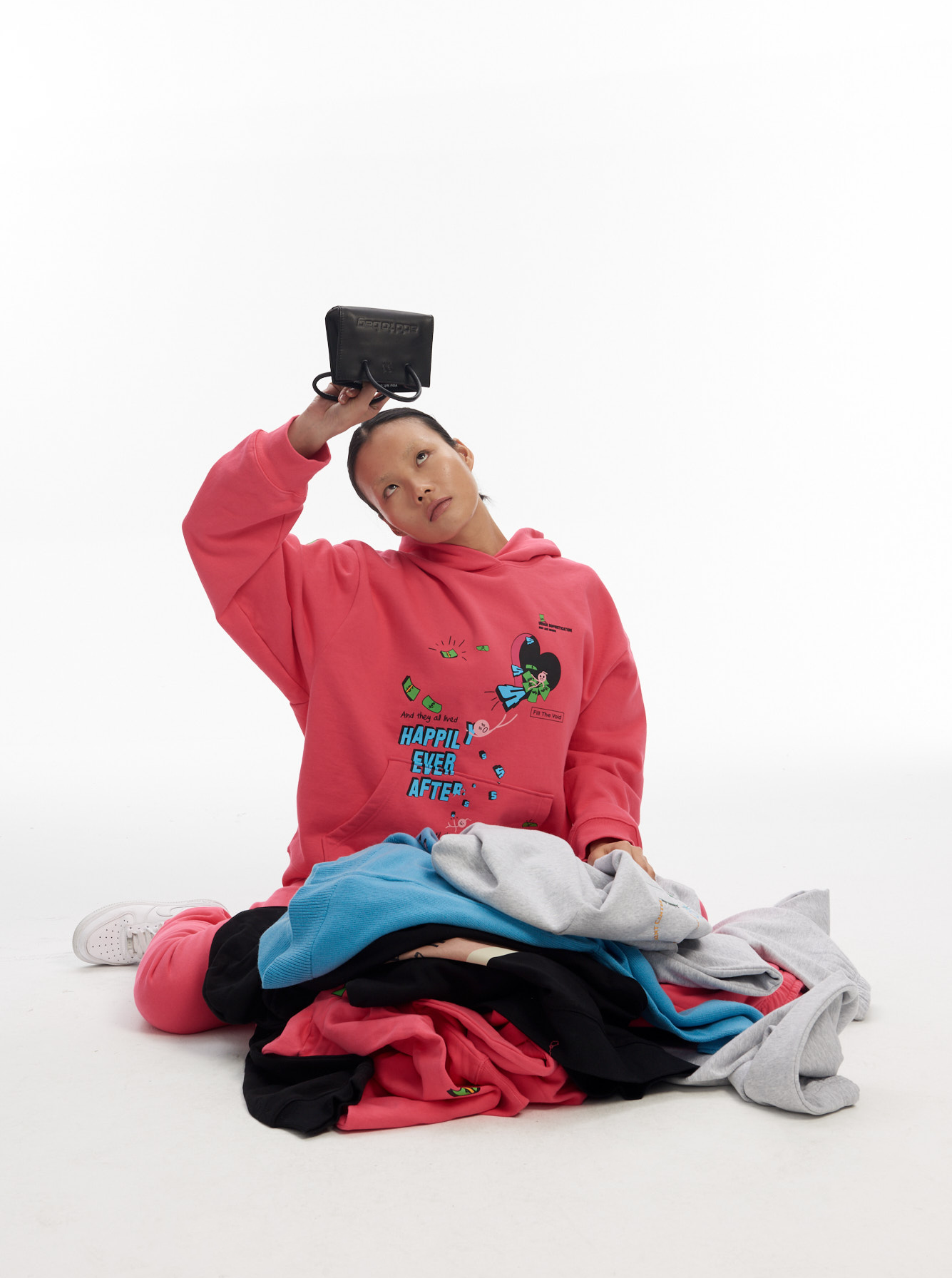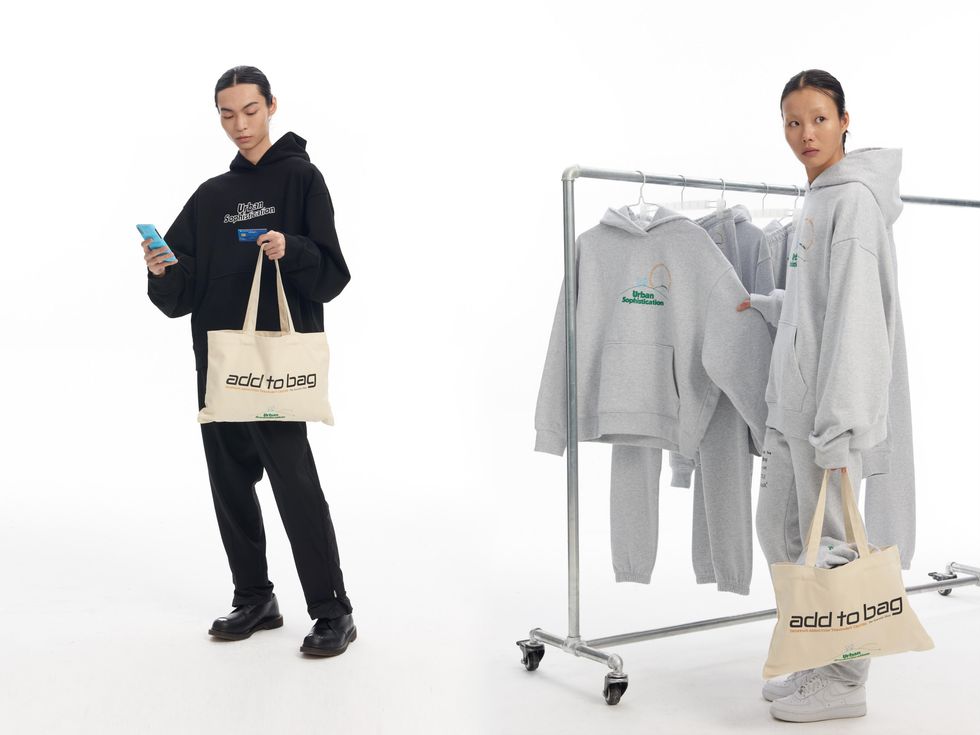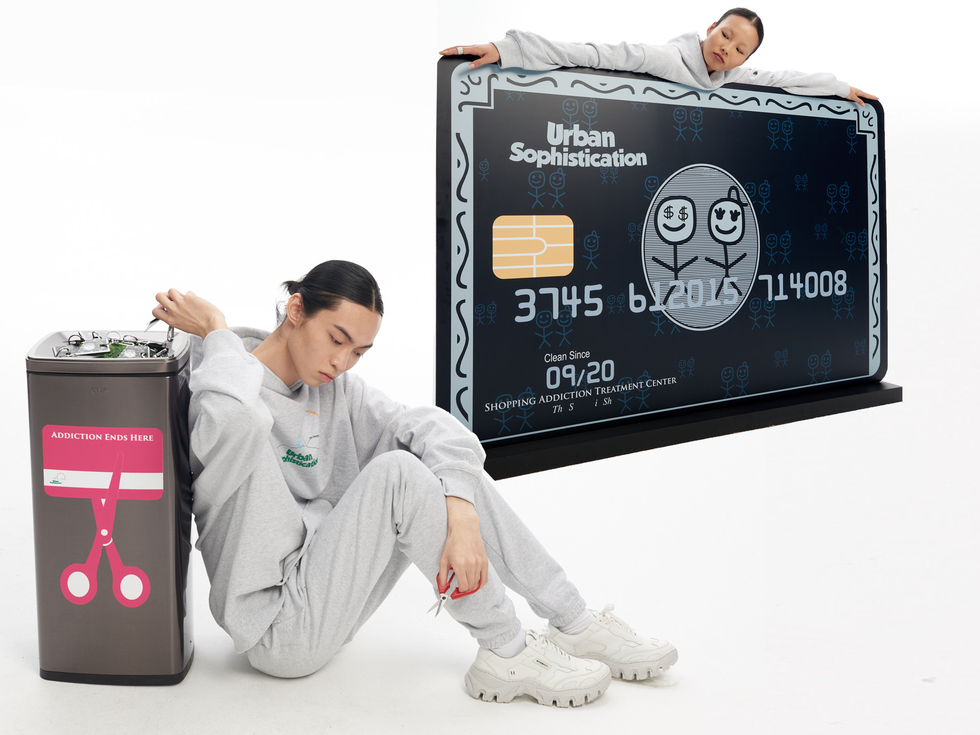
Internet
Urban Sophistication Wants You to Confront Your Shopping Addiction
by Valerie Stepanova
16 December 2020

"There can be a deep love for material objects — but what happens when we expect too much from them?" ponders Internet Tel Aviv brand Urban Sophistication. Their latest capsule, dubbed Fill The Void, confronts shopping addiction head on and imagines what a gift shop of a make-believe Shopping Addiction Treatment Center would look like.
Inspired by hype culture and the never-ending craving to consume — what can be referred to as a tamer incarnation of greed — the capsule focuses on the emotional experience of shopping, exploring the self-perpetuating impulse to consume, amass and accumulate.
Founded by Israeli siblings Neta and Elad Yam, the streetwear brand established itself as a provocateur in the world wide web and beyond. With supermodels, celebrities and fashion It-girls like Kaia Gerber, Gigi Hadid, Miley Cyrus and Kendall Jenner among its fans, the brand quickly went viral and retained its presence on social media and in entertainment culture.

"We were looking to wear ideas that reflect us but couldn't find streetwear that carried messages we resonated with, so we started making it ourselves, for us," they explained. "The products organically appeared in our social media posts, and we discovered that there was a community of us sharing the views we have on pop culture. We realized that these products altogether form a portrait of us as a collective, and not just the two of us we originally designed for. We named this portrait Urban Sophistication."
Existing as a storyboard of pop culture, each capsule released by the edgy brand serves as a physical archive of moments in time, chronicling society's development and how we perceive it. In light of the recent launch, PAPER spoke with the duo about their ideas behind the new drop, the problematic aspects of "filling" the metaphorical void with material objects and how their views of social media changed amidst the pandemic.
Urban Sophistication is known to reference and satirize pop culture. Has your focus on certain topics or aspects of this culture shifted at all during the pandemic?
It's more that the focus in culture has shifted during the pandemic. For the most part, we kept dealing with topics we shared our point of view on prior to the pandemic. The pandemic has transformed the meaning or the way we experience these subjects. Let's take mental health as an example — screen time spiked during quarantine and people spent more time on social media than they were used to. While normally "social media seriously harms your mental health," we found that social media actually helps to ease stress and anxiety during isolation; there was something comforting to see that the whole world is in the same situation and we are not alone.
How has your approach to doing business changed after this year events unfolded?
Since starting Urban Sophistication, we relied heavily on a direct-to-consumer model — so even though the retail landscape has changed drastically, we didn't really need to make adjustments distribution-wise. We also regard our ability to keep business as normal to the kind product we offer. Also, as many were and still are affected economically by the pandemic, consumption priorities have changed. Urban Sophistication is not a fashion brand; it is more of an entertainment company, and entertainment is a product we all crave during these difficult times. We sell food for thought, and with bars and restaurants closed, people are still hungry for something to take their minds off the daily struggles, a distraction, a moment of relief.
Why focus on shopping addiction now? What was the idea/inspiration behind this new drop?
A couple months ago, I visited a friend and saw a bunch of packages from Net-a-Porter, SSENSE and whatnot, and I thought to myself, "This friend is working from home and there's nowhere to go out to, and yet she keeps buying outerwear!" Around the same time, I saw these images of people fighting over packs of toilet paper, which they probably need as much as my friend needs a new denim jacket. These two visuals, and especially the difference between the product in the center of each event, inspired us to explore the impulse to shop for the sake of shopping.

The collection is called "Fill The Void" — what is the void that you guys are referencing here?
Well, there is no one answer to that. We always try to create a framework for thinking, and leave it empty for every person to fill it in a way they relate to it. Compulsive behavior, whether it is compulsive shopping, eating, or drinking, is usually an outer expression of something deeper. As for the relationship between filling the void and shopping addiction, we buy things we don't need to suppress and soothe negative feelings without specificity to particular moods or emotions. Many of us add to bag to fill a void, but the void differs from one to another.
How do you rationalize your denunciation of shopping addiction and consumerism while still offering consumers new products to shop — something that can potentially fuel this addiction that very same shopping addiction and consumerism?
What is unique about the point of view Urban Sophistication shares is that it is not critical. As we explore abstract phenomena in a tangible form, the aim is not to find an answer — yes or no, good or bad, black or white. We try to reflect complexity and encourage a conversation. Our community and the way they experience our pieces is an inseparable part of expressing the message. When we released the mental health warning iPhone case, people pointed out the irony of people posing with the case in selfies on Instagram. In our point of view, having this case popping up in the feed is the best portrayal of the complexity of social media — it's great and it's not, simultaneously. It is for every individual to decide what's the right balance for them.

How is that reflected in this drop?
With this drop, we envisioned an imaginary souvenir shop for a shopping addiction treatment center. The drop has a hoodie that says, "Shopping addiction treatment center saved my life, will definitely come back," and "add to bag" engraved on a super mini bag that can't even fit an iPhone, with "you left something behind" printed inside. Having someone consume these pieces is similar to someone posting on Instagram with the mental health warning case — it brings the statement to life and starts a conversation. In other words, the question you just asked is what we hoped people will ask when we envisioned the concept of this drop.
What's your vision for the future of the brand?
If so far we've been playing in dive bars, we work carefully towards performing in stadiums while preserving the same level of intimacy of playing in a dive bar.
Photos courtesy of Urban Sophistication